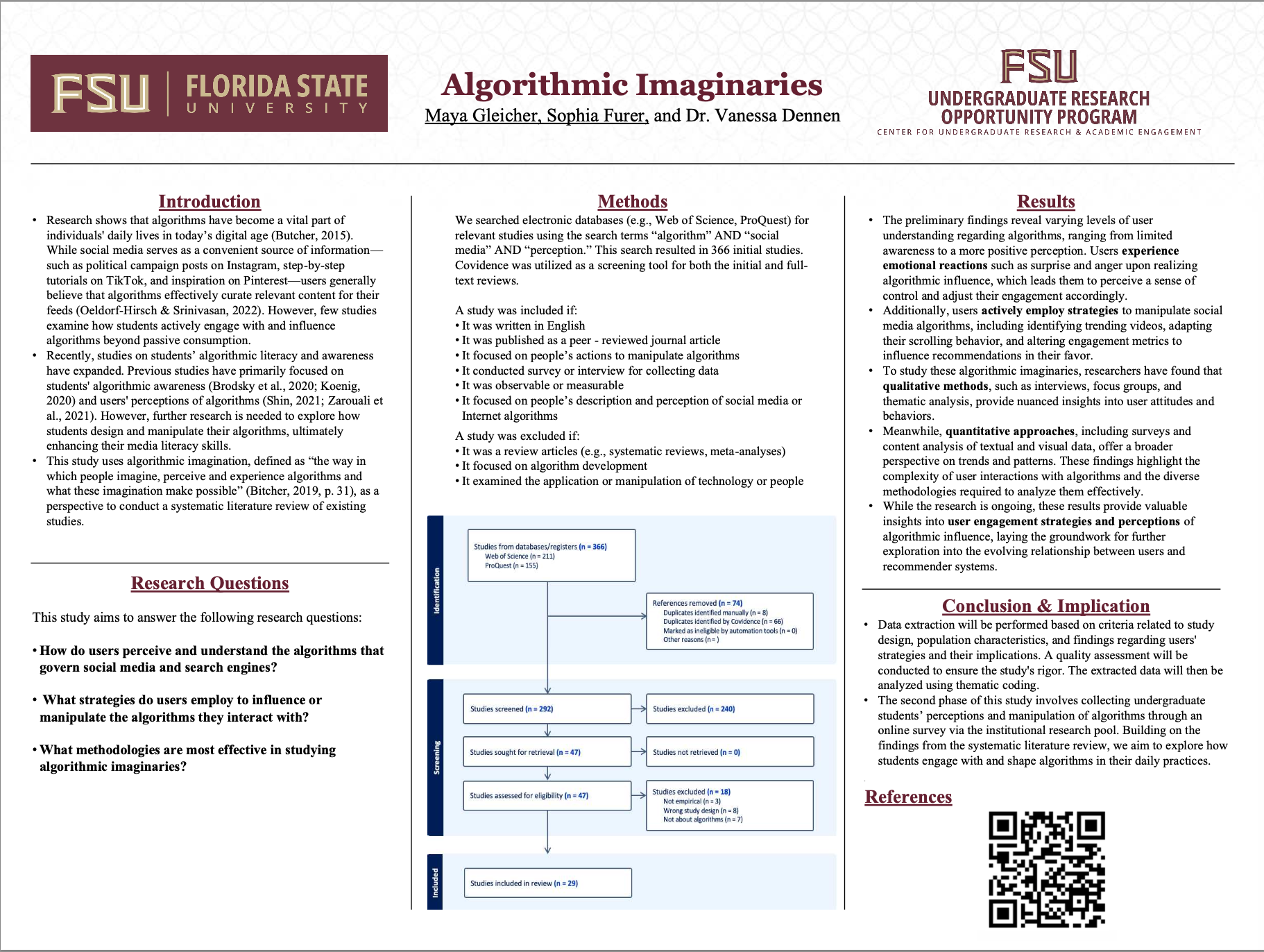Research Symposium
25th annual Undergraduate Research Symposium, April 1, 2025
Maya Gleicher Poster Session 2: 10:45 am - 11:45 am/ Poster #192

BIO
My name is Maya Gleicher, and I am a first-year majoring in Biological Sciences. This project focuses on how social media algorithms affect human behavior, which led to an interest in the intersection of technology and health. This research has inspired me to explore how biology and technology can work together to improve health and well-being. Outside academics, I am involved in the Women in Math, Science, and Engineering (WIMSE) LLC, American Medical Women's Association (AMWA), and Seminole Scuba Club. I plan to pursue a career in dermatology and make a positive impact on patient care
Algorithmic Imaginaries
Authors: Maya Gleicher, Dr. Vanessa DennenStudent Major: Biological Sciences
Mentor: Dr. Vanessa Dennen
Mentor's Department: Department of Educational Psychology & Learning Systems Mentor's College: College of Education, Health and Human Sciences Co-Presenters: Sophia Furer
Abstract
Social media algorithms shape user interactions with content, influencing engagement and behavior. This study investigates individuals' perceptions of these algorithms and their impacts on digital experiences. Given the dominance of social media in how people access information and form opinions, understanding these dynamics is crucial. This research employs a systematic literature review to identify key themes in users’ awareness and behaviors regarding algorithmic influence, such as concerns about bias and perceived control. Preliminary findings suggest a gap between users’ perceptions of algorithms and their actual behavioral impact. Users show differing levels of awareness, with some experiencing emotional reactions like surprise or anger when they realize algorithms affect their behavior, leading to changes in engagement strategies. Users attempt to manipulate algorithms by altering their scrolling habits or engagement metrics. The review highlights that qualitative approaches such as interviews and thematic analysis are valuable for understanding users' attitudes toward algorithms. The study emphasizes the importance of digital literacy, particularly for undergraduate students, to help them navigate social media platforms more critically. Given the varying levels of algorithmic understanding, the findings suggest the need for media literacy education on algorithmic presence and function, empowering them to make informed decisions in their digital environments. Future survey-based research will explore how students experience social media algorithms and their perceptions of digital engagement.
Keywords: algorithms, social media, imaginaries

